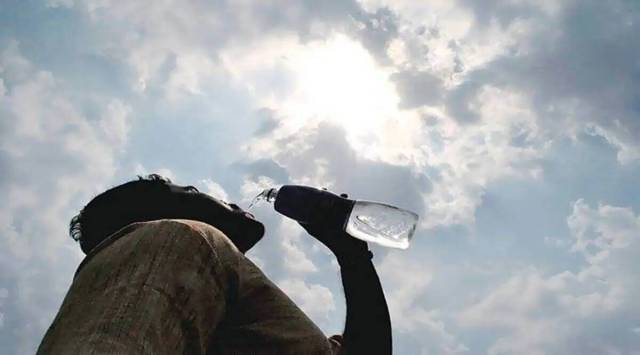Maharshtra reports 31 suspected heat stroke deaths in three months
The highest number of confirmed deaths in Maharashtra is reported from Nagpur, an officer said during a national workshop on climate change and human health at Ahmedabad
 Soaring temperatures have been witnessed across the country this summer and the north Maharashtra region saw the mercury touch 45 degree Celsius(file)
Soaring temperatures have been witnessed across the country this summer and the north Maharashtra region saw the mercury touch 45 degree Celsius(file)Maharashtra has reported 31 suspected heat stroke deaths from March till date this year. As many as 18 of these casualties have been confirmed to be heat-stroke deaths. Maximum numbers of deaths – 10 – were reported from Nagpur. Overall, 773 cases of heat-related illnesses have been recorded in Maharashtra in the last three months.
Soaring temperatures have been witnessed this summer and while rains have brought in relief, states have been advised to record real-time heat-related illnesses on an online portal. “We are still in a learning phase,” Dr Mahaveer Golechha, nodal officer, Centre of Excellence, Heat Health, National Centre for Disease Control, Union Ministry of Health and Family Welfare, told The Indian Express.
At a workshop held by the Union Ministry of Health and Family Welfare’s national programme on climate change and human health on Thursday and Friday in Ahmedabad, Golechha said that Maharashtra was foremost among all states to report heat-related cases and suspected deaths.
Maharashtra has consistently and systematically reported heat-related illnesses and deaths, Dr Dileep Mavalankar who heads the Indian Institute of Public Health at Gandhinagar said. However, not all states have been able to do so and a new online system for reporting has been developed, he added. After the successful Ahmedabad heat action plan that also saw setting up of heat wards at hospitals, training was provided to doctors in seven cities across Nagpur circle over the years which reports maximum number of cases in Maharashtra.
Dr Pradeep Awate, Maharashtra surveillance officer who made a presentation at the workshop, told The Indian Express that four deaths were reported in Nashik circle and two from Aurangabad circle. One death each was reported from Latur and Akola circle. There were 46 cases of heat-related illnesses reported from Pune circle while Nagpur circle had the highest numbers at 620 cases. There were 59 cases from Akola circle, 24 from Aurangabad circle and 19 from Nashik circle, Dr Awate said. This year, medical teams from B J Medical College have also trained doctors from the public health department on managing heat-related illnesses, Dr Awate added.







